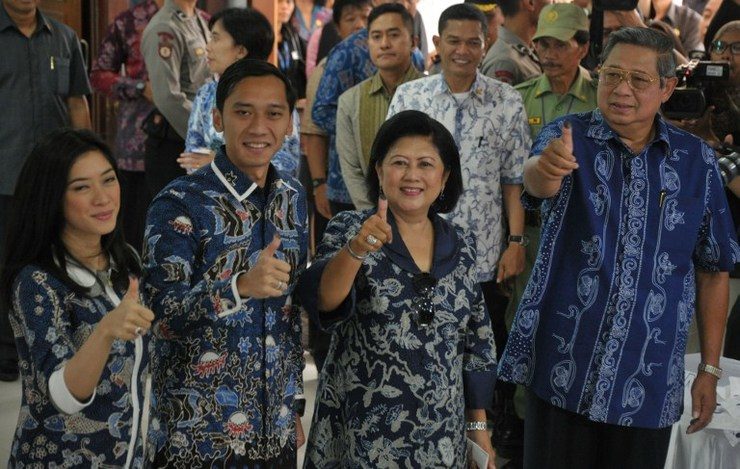SUMMARY
This is AI generated summarization, which may have errors. For context, always refer to the full article.

JAKARTA, Indonesia – The ruling Democratic Party on Wednesday, September 17, confirmed their official stance in support of maintaining direct local elections in Indonesia. This gives the upper hand to the political parties who are against the controversial Regional Elections Bill.
“On the debate over the Regional Elections Bill (RUU Pilkada)… we should be in line with the thinking of the people, including the aspiration of regional leaders, who do not want the political rights of the citizens of Indonesia to be removed,” party secretary general Edhie Baskoro Yudhoyono, or Ibas, said in a statement.
The bill seeks to have regional executive leaders be chosen by local legislatures (DPRD). This was the way it used to be, until post-Suharto era reforms led to Indonesians being able to directly vote for them for the first time in 2005.
The coalition led by Prabowo Subianto and the parties that supported his failed bid for the presidency began pushing for the bill on September 2, despite rejecting it previously. Many saw it as an attempt by the political elite to gain the upper hand after losing to President-elect Joko “Jokowi” Widodo, a product of the direct election system. (READ: Prabowo’s revenge? New bill puts voting rights at risk)
They initially had the numbers needed to pass the bill, until the Democratic Party – which was thought to be part of Prabowo’s coalition – clarified its position.
Democratic stance
First, President Susilo Bambang Yudhoyono said in a video released by the ruling party’s official channel on YouTube on Sunday that they are not part of Prabowo’s Merah-Putih (Red and White) coalition. Nor are they part of Jokowi’s minority coalition of parties.
Fadli Zon, the deputy secretary general of Prabowo’s Gerindra Party, confirmed on Wednesday that the Democrats never signed the coalition agreement. “But they have been voting with us and we’re hopeful they’ll vote with us on RUU Pilkada,” he told Rappler.
In the YouTube video, Yudhoyono also hinted at supporting direct elections, saying he recognized its advantages and compatibility with the presidential system, but stopped short of officially saying the party was rejecting the bill.
Yudhoyono’s stance was seen as crucial both as president, since he can instruct the Ministry of Home Affairs to withdraw the bill, and as chairman of the ruling party.
With 148 lawmakers, the Democrats make up the largest faction in the 560-seat House of Representatives. The 3 other parties that reject the bill – Jokowi’s party, the Indonesian Democratic Party of Struggle (PDI-P), and the two smaller parties that supported him during the election, Hanura and National Awakening Party (PKB) – control another 139 seats.
Together, the 4 parties have 287 seats – just slightly more than half the total, and in theory enough to reject the bill if it goes to a plenary vote on September 25.
Electoral changes still needed
However, both the president and his son Ibas said they believed there needs to be improvements in the regional election system to prevent the excesses that have been seen over the past 10 years.
Critics of the direct election system cite the fact that it costs the country up to IDR60 trillion ($500 million), leads to disputes that can be violent or end up in the Constitutional Court, and encourages corruption because of the funds needed to mount a campaign.
Proponents of maintaining the system, however, argue that while the system was not perfect, improving it would be better than removing the voting rights of people.
A recent survey by the Indonesian Survey Circle showed more than 80% of Indonesians oppose the bill. An online petition on change.org rejecting the bill also has more than 50,000 signatures now, including from artists and celebrities.
Popular local government officials have also come out strongly against the bill, notably Jakarta Deputy Governor Basuki “Ahok” Tjahaja Purnama, Bandung Mayor Ridwan Kamil and Bogor Mayor Bima Arya, all of whom come from political parties that support the bill. – with a report from Abdul Qowi Bastian/Rappler.com
Add a comment
How does this make you feel?
There are no comments yet. Add your comment to start the conversation.